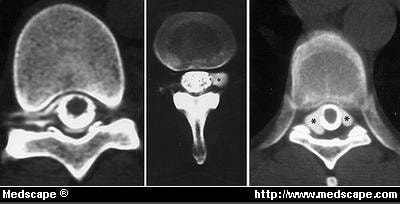

There have been some small retrospective reviews on mCSFLs published in the last 10 years. An even more rare entity occurs when sCSFL patients present with multiple cerebrospinal fluid leaks (mCSFLs) ( 3). In keeping with this theory, idiopathic intracranial hypertension (IIH) has been shown to be strongly associated with the condition ( 2). It is believed that increased intracranial pressure (ICP) may result in thinning of the skull base and eventual disruption of the dura mater. sCSFL are most commonly found in obese, middle aged females ( 1). Spontaneous cerebrospinal fluid leak (sCSFL) is a rare phenomenon that is gradually becoming more understood in recent years. Received: Accepted: 08 September 2021 Published: 25 January 2022. Keywords: Spontaneous cerebrospinal fluid leak (sCSFL) multiple cerebrospinal fluid leaks increased intracranial pressure (ICP) case report Additionally, studies need to ensure longer follow-up time due to the underlying chronicity of increased intracranial pressure (ICP) and investigate whether or not a non-active leak site should be repaired or left alone. Future prospective studies in the area of mCSFLs that take into consideration demographic and geographical information are needed for more accurate interpretation and better recruitment. As mCSFL tend to be sporadic and asymptomatic in nature, it is likely they are underreported. Three months post-operatively the patient had no evidence of a recurrence. The patient underwent image guided endoscopic sinus surgery with multilayer skull base defect repair of three active CSFLs.

Initially misdiagnosed as allergic rhinitis, nasal discharge was later confirmed positive for beta-2-transferrin and a CT scan revealed multiple bony areas of skull base erosion. A 45-year-old obese female presented with a 5-week history of bilateral clear nasal discharge with no previous surgery or trauma. This is explored through summarizing the literature on mCSFLs to the present time. We present a mCSFL patient as a case report and demonstrate the need for future prospective studies to improve further understanding and management of the condition. There have been documented cases reported over the last decades, but many with only limited descriptions of each patient. Policy of Dealing with Allegations of Research MisconductĪbstract: While a spontaneous cerebrospinal fluid leak (sCSFL) is a rare phenomenon, patients who present with multiple cerebrospinal fluid leaks (mCSFLs) are an even rarer entity.Policy of Screening for Plagiarism Process.


 0 kommentar(er)
0 kommentar(er)
